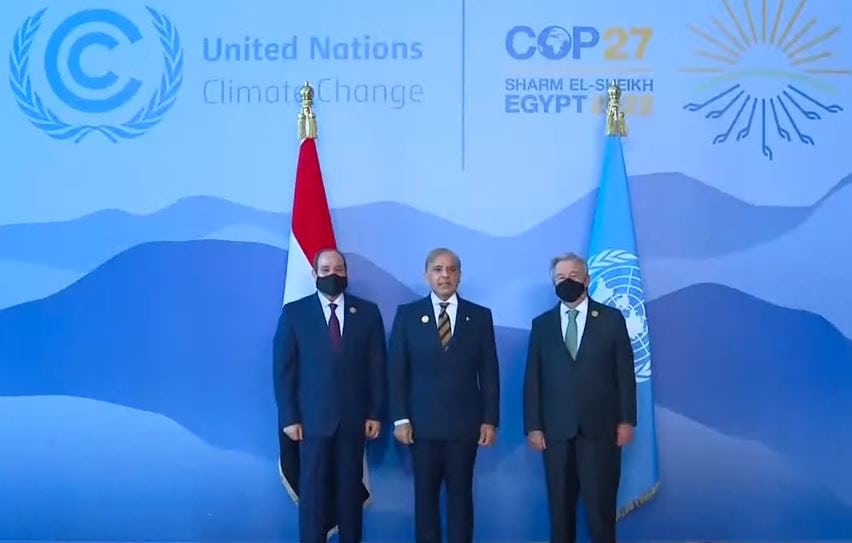Prime Minister Shehbaz Sharif on Tuesday stated that the country required more money, not debt, to create a climate change-resistant and flexible infrastructure.
Speaking at the COP27, the 27th United Nations Climate Change Conference held in Egypt, he stressed that it was the duty of the global north to understand Pakistan’s plight.
At High-Level Segment of #COP27, I presented flood devastation in Pakistan as an example of what climate change can do to a country. I drew the attention of the global leaders to the need for bridging massive financing gaps, inclusion of loss & damage in the agenda.
— Shehbaz Sharif (@CMShehbaz) November 8, 2022
Speaking to international leaders, he stated that 33 million people, or the population of three European nations, had been affected by the devastating flooding brought on by climate change in Pakistan, with more than half of those being women and children.
PM Shehbaz emphasized that the floods had wiped out over four million acres of crops and damaged over 3,000 kilometres of railroad infrastructure in addition to destroying over 8,000 kilometres of motorways.
“The post-disaster needs assessment estimates over $30 billion in loss and damage,” he said.
He added that although contributing less than 1% of the carbon footprint, Pakistan was affected by the man-made disaster and had to spend almost $32 billion importing wheat, palm oil, and “extremely expensive” oil and gas due to the devastating floods.
Highlighting the need to meet the basic humanitarian necessities of the affectees, he expressed that Pakistan is spending billions of dollars from its own resources to provide shelter, homes, medical aid, and food packages to millions of people.”
The concerns
The global goal of adaptation was prioritized by Pakistan, according to the Prime Minister, both in terms of funding and timeframes. The existing funding gap is too large to support any genuine recovery needs of individuals living in areas most affected by the climate crisis.
Secondly, Prime Minister Shehbaz called attention to the fact that the loss and damage needed to be a part of the COP27’s core agenda to fulfill the urgent humanitarian needs of those who were stranded in a public finance crisis fed by debt and still had to pay for climate disasters on their own.
Thirdly, he urged a clear definition of climate finance as fresh, additional, and ongoing funds with a transparent framework to meet the requirements of developing and vulnerable nations with the necessary speed and scale.
“We have been talking for years. But have failed to even agree on the basics. Pledges made at the Copenhagen COP15 in 2009 for mobilizing $100 billion per annum by 2020 have still not been realised. They need to be enhanced given the increased frequency and intensity of climate extreme events,” he underlined.










